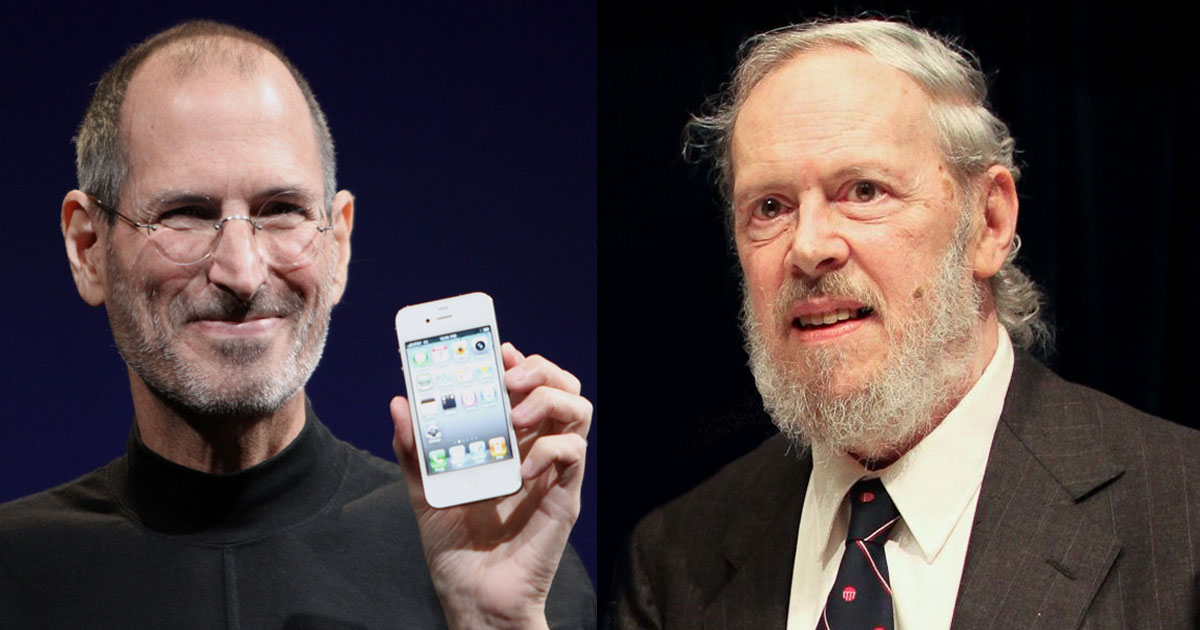TWO giants of technology died in recent weeks in widely contrasting fashion. Many mourned the passing of the genius who was Steve Jobs, only a few marked the demise of the genius who was Dennis Ritchie.
But despite that disparity, in life as in death, there is a thread that binds Jobs and Ritchie — that of greatness, genius and Unix.
Jobs changed technology and made it elegant, producing product after product that transformed industries — the Apple II, Mac, iPod, iTunes, iPhone and iPad. Any one of those products would have been enough to cement the legacy of a technology entrepreneur.
Jobs was uncanny in seeing technology trends. “He told us what we needed before we wanted it,” the Associated Press said in reporting his death. And it was something he was particularly proud of.
“There’s an old Wayne Gretzky quote that I love. ‘I skate to where the puck is going to be, not where it has been.’ And we’ve always tried to do that at Apple. Since the very, very beginning. And we always will,” Jobs said in 2007.
Ritchie, on the other hand, created the C programming language and is the co-developer, with Ken Thompson, of the Unix operating system (OS). What he built and their progenies, Princeton University computer scientist Brian Kernighan said in a New York Times report, “run pretty much everything today.”
Ritchie and Thompson created Unix after a project based on Multics was cancelled. John Naughton recounted in The Observer, “so in a fantastic burst of creativity (and without asking anyone’s permission) they wrote Unics (as counterpart to Multics). Inevitably the ‘cs’ became ‘x’ and Unix was born.”
Wired did not overstate Ritchie’s importance when it said he was “the shoulders Steve Jobs stood on.” Practically everything on the Web uses C and Unix.
“The browsers are written in C. The Unix kernel — that pretty much the entire Internet runs on — is written in C,” said Google employee and programming legend Rob Pike, who worked with Ritchie in Bell Labs, in a Wired report.
Unix is the forebear of Linux, my favorite operating system and the one that powers the biggest share of the world’s websites. It is also the forebear of the Mac OS X and the iOS that run the current crop of Apple products. When Jobs was forced out of Apple in 1985, he started NeXT computer, which used a derivative of Unix as its operating system. Apple later bought the company largely for its OS, paving the way for Job’s return to Apple.
Jobs and Ritchie changed the world. But while Jobs was a tech icon, making the transition to pop culture as the epitome of geek-cool, Ritchie was largely unnoticed save for the small community of hardcore tech nerds.
And yet they embodied “the one who see things differently,” as the now iconic “Think Different” ad by Apple puts it.
“Here’s to the crazy ones. The misfits. The rebels. The troublemakers. The round pegs in the square holes. The ones who see things differently. They’re not fond of rules. And they have no respect for the status quo. You can quote them, disagree with them, glorify or vilify them. About the only thing you can’t do is ignore them. Because they change things. They push the human race forward.”
“While some may see them as the crazy ones, we see genius. Because the people who are crazy enough to think they can change the world, are the ones who do.”
Max is a journalist and blogger based in Cebu. He has written and edited for such publications as The Freeman, The Independent Post, Today, Sun.Star Cebu, Cebu Daily News, Philstar Life, and Rappler.
He is also a mobile app and web developer and co-founded InnoPub Media with his wife Marlen.


Leave a Reply